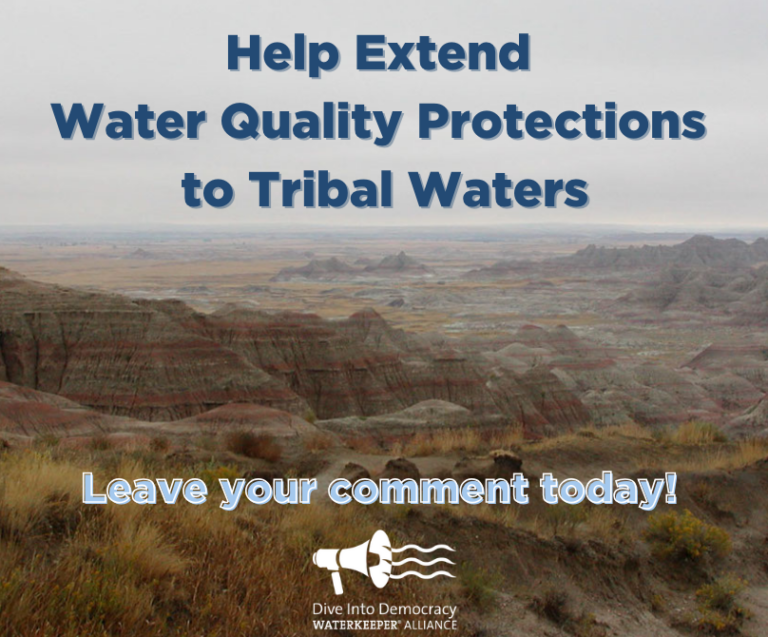Help Extend Water Quality Protections to Tribal Waters
By: Thomas Hynes

The United States Environmental Protection Agency (EPA) recently proposed a new rule that would institute federal baseline water quality standards (WQS) for the waters on over 250 Tribal lands throughout the country. Critically, these areas do not currently have water quality standards in effect under the Clean Water Act. If finalized, this rule would establish important water quality protections for Tribal waters similar to the majority of waters across the United States that are protected through EPA-approved water quality standards adopted by every state and 47 Tribal governments.
Water quality standards are the bedrock of the pollution controls required by the Clean Water Act, and are crucial to protecting environmental integrity and human health. For example, water quality standards are used to control pollution discharges through the Act’s permitting systems and to identify and restore polluted waters.
Yet today, the United States is home to over 300 Tribes with reservations, but only 47 have EPA-approved water quality standards. That is why EPA must quickly act to extend the same Clean Water Act safeguards that currently exist in the rest of the United States to Tribal waters.
Will you take a moment to urge EPA to extend Clean Water Act protections to Tribal nations?
EPA estimates that its proposed rule will protect roughly “76,000 miles of rivers and streams and 1.9 million acres of lakes and reservoirs on Indian reservations that lack Clean Water Act standards.” This rule will establish water quality requirements for reservations, facilitate Tribal participation in managing water quality, provide a basis for enforcement, and protect reservation waters from upstream pollutant discharges.
Specifically, the rule will “provide a common set of designated uses (e.g., fishing and swimming), establish pollution limits to advance progress toward clean and safe water, and include antidegradation policies to protect Tribal waters from becoming more polluted.” These standards would be implemented in consultation with Tribal governments to address local conditions and circumstances. Furthermore, these standards would only apply until such time that Tribal governments are able to administer their own standards under the Act’s provisions for Tribes to be treated as states. Establishing water quality standards that are protective of Tribal reserved rights and resources also supports healthier ecosystems, and ultimately, cleaner waters for everyone.
Nonetheless, EPA must take additional actions to improve the proposed water quality criteria and ensure protections are no less stringent than EPA-approved standards in other parts of the country. Specifically, EPA should:
- Ensure the baseline water quality standards are consistent with EPA regulations and protect all relevant beneficial uses of water as required by sections 101(a)(2) and 303 (c)(2) of the Clean Water Act.
- Establish public water supply as a default designated use protected by numeric limits for pollutants like metals, organic chemicals, and pathogens and narrative limits prohibiting pollutants like those that create taste/odor problems, oil and grease contamination, toxicity, and cancer.
- Adopt protective numeric and narrative limits for toxic pollutants, radioactive pollutants, pathogens, cyanotoxins, nutrients, and biocriteria as required under Sections 303(c)(2)(B), 303(i)(1)(A), and 304(a) of the Clean Water Act and consistent with EPA’s recommended water quality criteria to protect aquatic life, human health, recreational uses, public drinking water, coastal waters, and fish consumption.
- Revise the proposed narrative prohibitions on toxic and radioactive pollutants to ensure they are consistent with the Clean Water Act prohibitions and not limited to only impacts on the proposed designated uses.
- Eliminate provisions that allow the adoption of variances and designated use removal without additional rulemaking.
These amendments to the proposed rule are essential for protecting and restoring water quality in Tribal waters in a manner that is equivalent to the protections for other waters across the country.
Leave your comment today to support establishing strong, protective Clean Water Act water quality standards for Tribal waters that currently lack these essential protections.